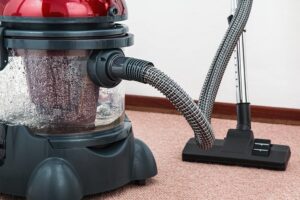The average person spends around 8 percent of their income on energy costs which, when you add it up over the course of a lifetime, is a considerable sum of money. Most of those resources go into supplying energy to the home, providing gas and electricity to keep it warm in the winter and cool in the summer.
But did you know that there are many small home upgrades that you can make to potentially save a small fortune over the long-term? Well, there are. Here’s a rundown.
Extra Insulation In The Loft
Go up to your loft and have a look around. You should notice a layer of insulating material on the floor, between the rafters. Take a closer look at it and measure how thick it is. If your home insulation is like most people’s, it’s about 120mm.
However, home insulation technology has moved on considerably over the last few years. And now the standard is for material to be 300mm thick. The thicker it is, the harder it is for heat to escape your home, and the less you have to spend on energy bills.
Replace Your Door And Window Seals
Now take a closer look at your door and window seals. Ideally, they should be airtight, preventing any drafts or air from entering your home from the outside, cooling it down. Unfortunately, seals have an annoying habit of cracking, which can make them less effective over time.
The good news is that you don’t have to replace your windows and doors to upgrade the efficiency of your home. Just reseal your existing doors and windows to get a similar effect.
Change Your Boiler
Boilers can go on running for more than a decade. But that doesn’t mean you should keep yours for that long. Over the last few years, manufacturers have made considerable improvements to their products so that today, they only use a fraction of the energy they once did.
Getting a boiler replacement could be one of the best things you ever do to make your home more efficient. Over the long-term, your bills will decrease, allowing the boiler to pay for itself.
Replace Old Kitchen Appliances
The same principle applies to old kitchen appliances. Older appliances started off less efficient than their modern counterparts. But then, over time, they degrade even further, requiring more energy to keep them running optimally.
Replacing old appliances requires a substantial upfront outlay. But again, you can realize substantial savings over time, especially if you use your appliances often. Replacing appliances with the most efficient versions can reduce your energy consumption by up to 40 percent.
Improve Your Water Usage Efficiency
Lastly, you can invest in improving your water usage efficiency. Many homes are still using standard shower heads and bathroom fittings. But today, you can get water-sparing versions that offer a similar experience to the regular versions. Many simply aerate the water, spreading it over a larger volume so that it feels like you’re getting a substantial flow, even if you’re using only a fraction of the water of a conventional system.














Subscribe and Follow